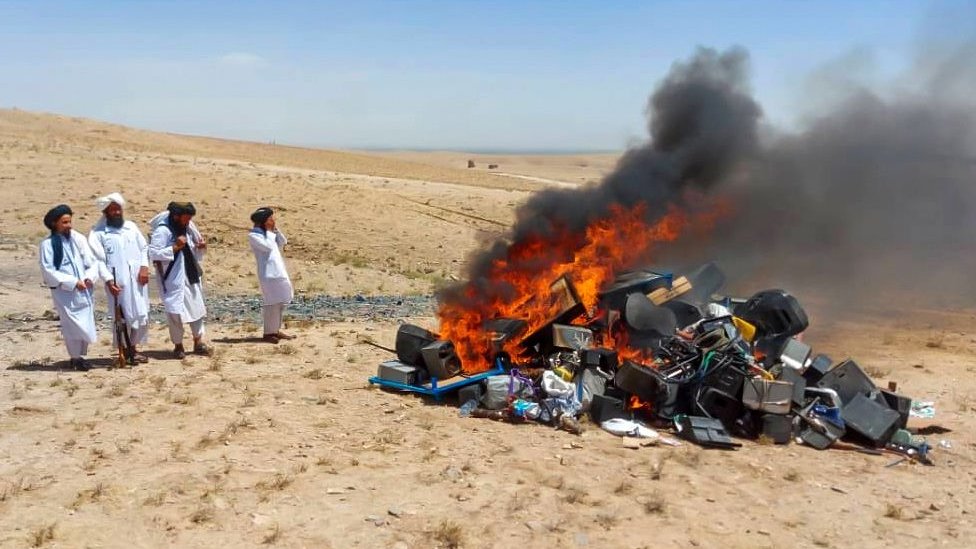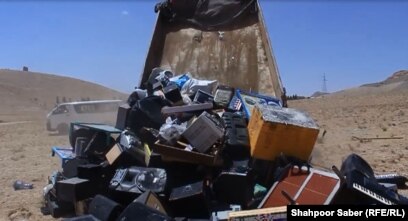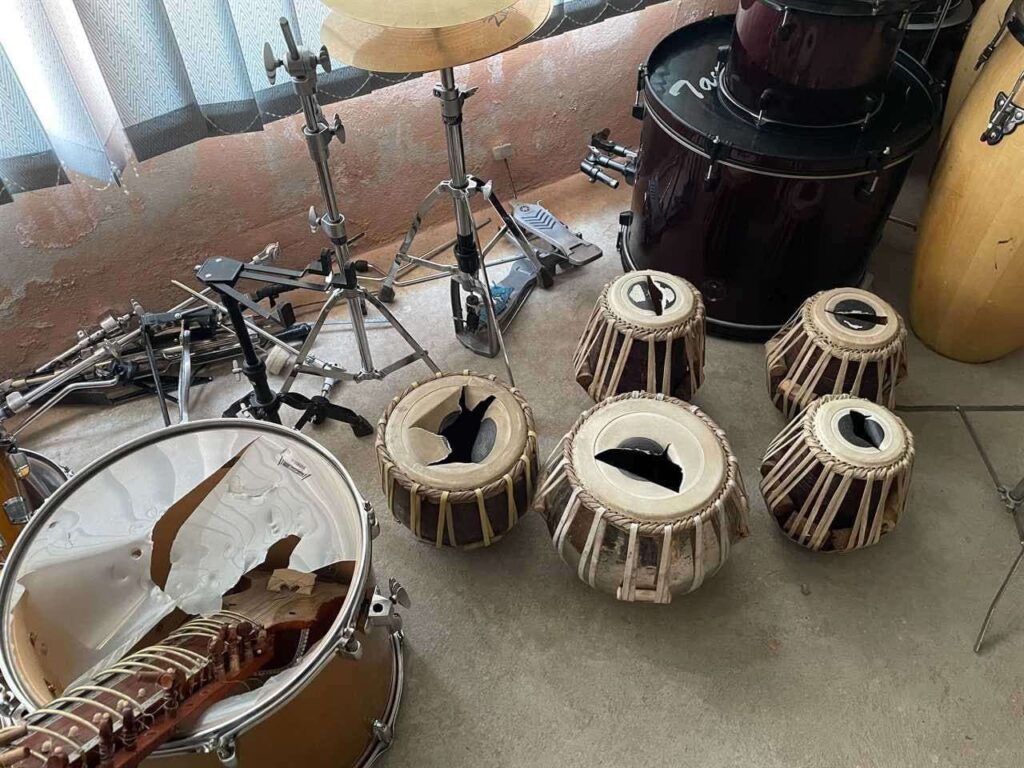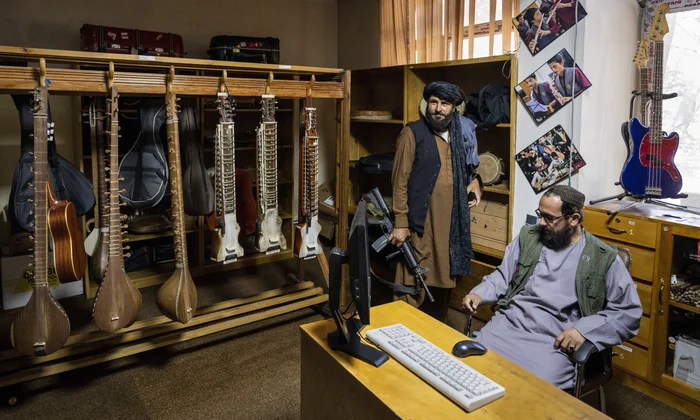KABUL, Afghanistan — The Taliban’s Ministry for the Propagation of Virtue and the Prevention of Vice announced Tuesday that it has “seized and destroyed” more than 21,000 musical instruments over the past year as part of a broader crackdown on what it deems anti-Islamic practices in Afghanistan.

The announcement came during a news conference in Kabul, where ministry officials discussed their “annual performance.” This briefing followed a public burning of hundreds of musical instruments in the northern Parwan province on Monday, where local moral police urged residents to refrain from using musical instruments at weddings and other celebrations.
Ministry officials claimed to have destroyed thousands of “immoral films” and blocked many more “from use on personal computers” nationwide, describing these actions as part of ongoing “societal reforms.”
The nature of these films was not elaborated upon. The ministry also stated that it had “successfully implemented 90% of reforms across audio, visual, and print media” in Afghanistan, though specifics were not provided.
These actions have raised concerns among free media advocacy groups and local journalists, who report that Taliban leaders have significantly curtailed press freedom and access to information since taking control of the country three years ago.

The Ministry of Vice and Virtue, revived by the Taliban to police public morality, has introduced strict guidelines for local media professionals. These include requiring female presenters and guests to comply with an “Islamic” dress code on air, leaving only their eyes visible. Women are now prohibited from working on national radio and television stations, and dramas featuring female performers are banned.
In addition to media restrictions, the Taliban has enforced strict “gender-based segregation” in workplaces across the country. The morality ministry also reported dismissing more than 280 security force members for failing to grow beards, which is mandated by the Taliban’s strict interpretation of Islamic law.
On Tuesday, Hibatullah Akhundzada, the reclusive Taliban supreme leader, convened a meeting of governors from all 34 Afghan provinces in the southern city of Kandahar. According to his spokesman, Zabihullah Mujahid, Akhundzada instructed the governors to “uphold sound Islamic governance” and to “strengthen the Islamic framework, enforce Sharia law, and reinvigorate divine ordinances.”

Mohammad Khalid Hanafi, the minister of vice and virtue, was quoted by state media on Monday as saying, “We are determined to implement Islamic Sharia and no one’s pressure is acceptable in this regard.”
The United Nations Assistance Mission in Afghanistan (UNAMA) reported last month that the Taliban’s morality police were contributing to “a climate of fear and intimidation” among the Afghan people.
UNAMA identified the Ministry for the Propagation of Virtue and the Prevention of Vice as the leading violator of human rights within the Taliban government, which remains unrecognized by any country.

These developments highlight the ongoing tension between the Taliban’s strict interpretation of Islamic law and international concerns about human rights and cultural freedoms in Afghanistan.
As the Taliban continues to implement its vision of governance, the international community watches closely, with many expressing alarm over the erosion of personal freedoms and cultural expression in the country.
The destruction of musical instruments, in particular, has drawn criticism from cultural preservation advocates who argue that music is an integral part of Afghan cultural heritage. The Taliban’s actions against music and other forms of artistic expression raise questions about the long-term impact on Afghan culture and society.
As Afghanistan grapples with economic challenges and international isolation, the Taliban’s focus on these “societal reforms” continues to shape the country’s domestic and international standing, with significant implications for its people and its relationship with the global community.



